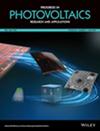Micro–Macro Performance of Naturally Aging Amorphous Silicon Photovoltaics From BIPV Applications
Abstract
Amorphous silicon thin-film photovoltaics have been widely utilized in building-integrated photovoltaics (BIPV) due to their advantages of lightweight, flexible, and easily transportable properties. However, long-term exposure to natural environmental conditions leads to the gradual degradation of their properties. To investigate the effects of aging on the mechanical performance and stress-related electrothermal reduction of these photovoltaics, this study selects naturally aged amorphous silicon thin-film photovoltaics as the research subject. Uniaxial tensile tests and microscopic morphology characterization were conducted to analyze specimen mechanical behavior throughout the full loading process and to reveal the mechanisms influencing temperature and voltage responses. Experimental results indicate that the aged photovoltaics exhibit an elastic modulus of 4108 MPa and a tensile strength of 49.86 MPa. Structural failure occurs due to the fracture of the stainless steel substrate during loading, while electrical failure and temperature decrease are observed prior to the yielding stage, with the temperature drop occurring after electrical failure. Electro–thermal–mechanical response reveals that the loss of photovoltaic capability leads to a reduction in internal current, which subsequently induces the temperature decrease. These findings can provide valuable insights for evaluating the long-term operational performance and safety of building-integrated photovoltaics.


 求助内容:
求助内容: 应助结果提醒方式:
应助结果提醒方式:


